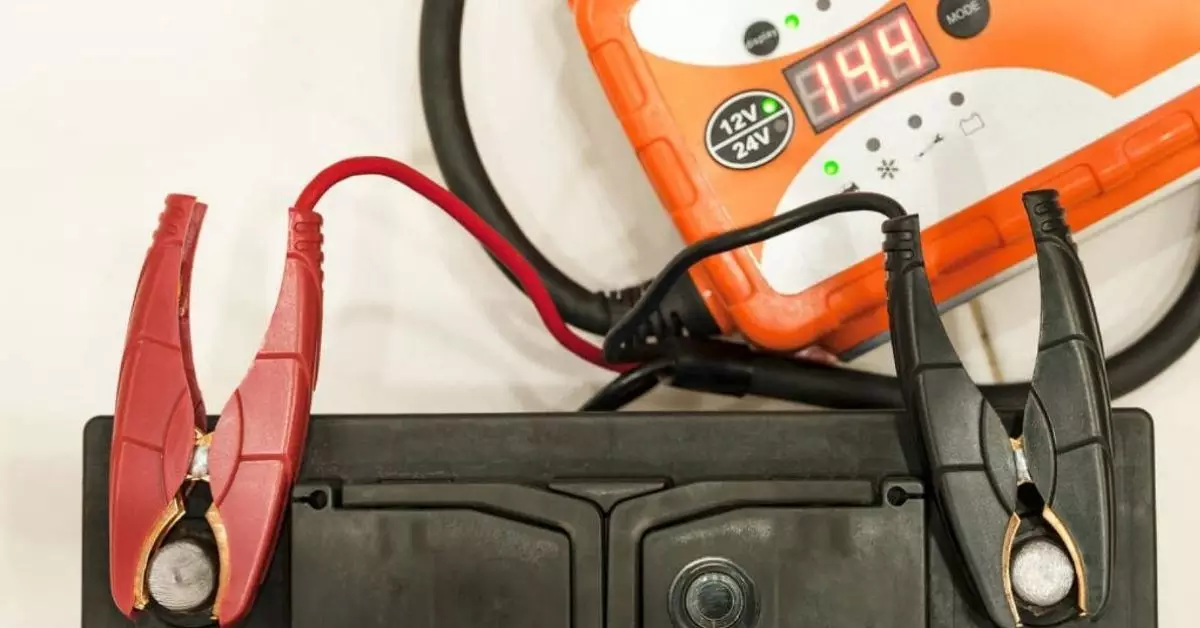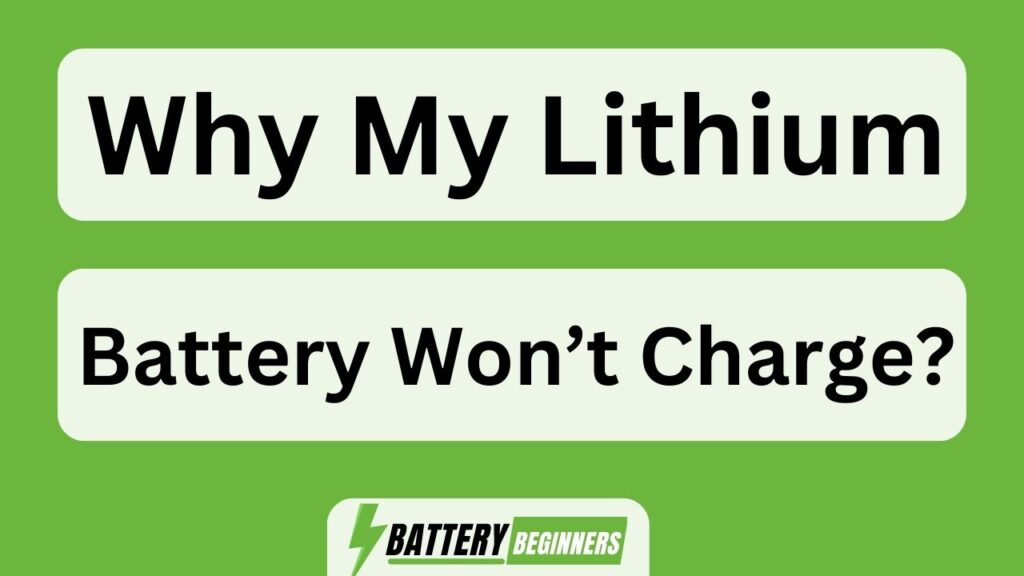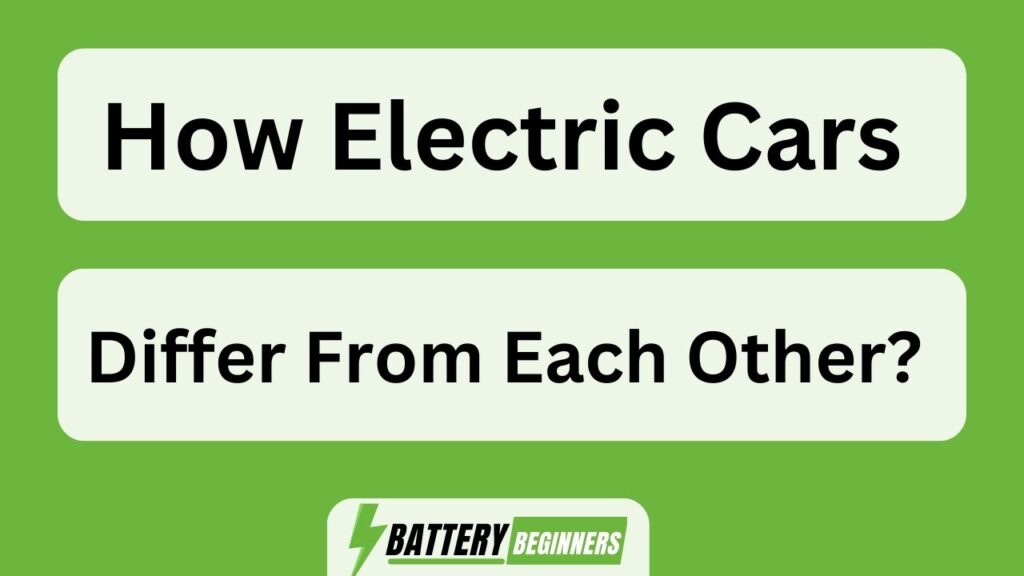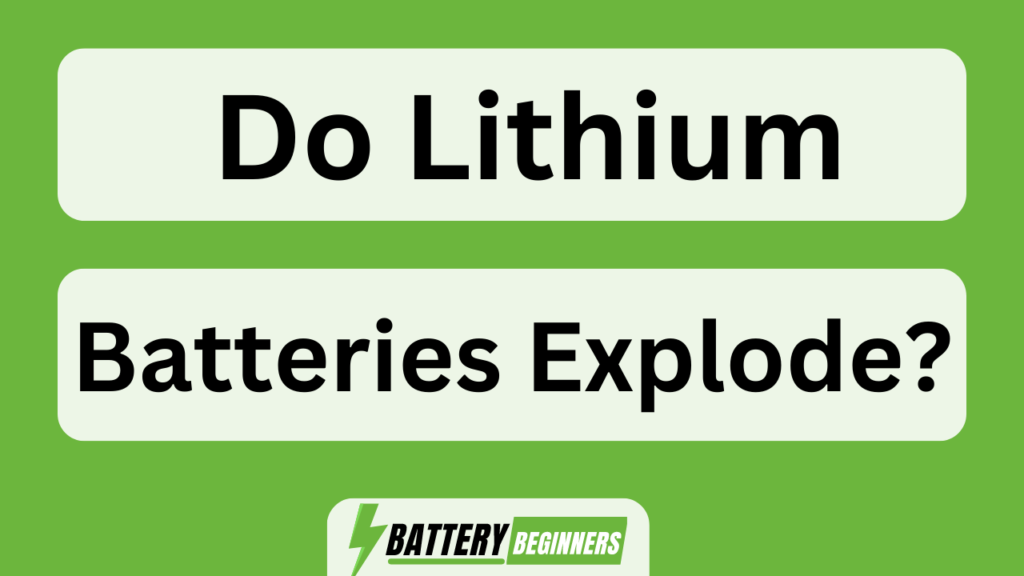Did you know that nearly 90% of households in the United States own at least one battery-powered device? With so many devices and batteries to manage, it’s important to understand the compatibility between chargers and batteries.
In this article, we will delve into the question: Can you charge a 16V battery with a 12V charger?
Voltage compatibility is crucial when it comes to charging batteries safely and effectively. Using a charger with an incorrect voltage can lead to potential risks such as overheating, damage to the battery, or even electrical hazards. We will explore these risks in detail and discuss the importance of using compatible chargers.
Additionally, we will provide safety measures to consider when charging batteries, along with alternatives for charging a 16V battery if a 12V charger is not suitable. We will also address common misconceptions surrounding this topic and offer valuable tips for maintaining and caring for your batteries.
Understanding the impact of charging incompatibility is essential for preserving the lifespan of your batteries while ensuring your safety. So join us as we explore alternatives and prioritize safety when it comes to charging a 16V battery with a 12V charger.
Key Takeaways
- Understanding charger and battery compatibility is crucial for safe and effective charging.
- Using a 12V charger on a 16V battery can lead to risks such as overheating and damage.
- Proper ventilation and temperature monitoring are important during charging to prevent overcharging and overheating.
- Alternatives to charging with a 12V charger, such as using a regulated power supply or investing in a dedicated 16V charger, should be considered to ensure optimal charging performance and avoid potential damage.
Understanding Voltage Compatibility
You might be wondering if you can charge a 16v battery with a 12v charger, but don’t worry, we’ll help you understand voltage compatibility!
When it comes to charging methods and voltage requirements, it’s crucial to consider the specifications of both the battery and the charger. A 12v charger is specifically designed to provide a constant voltage output of 12 volts, which may not be sufficient for charging a 16v battery effectively. The difference in voltage between the battery and charger can impact the charging process and potentially damage either or both components.
It is essential to use a charger that matches the voltage requirements of your battery to ensure safe and efficient charging. Now let’s delve into the potential risks of charging a 16v battery with a 12v charger without compromising safety or performance.
Potential Risks of Charging a 16V Battery with a 12V Charger
When charging a 16V battery with a 12V charger, there are potential risks that need to be considered. First, overcharging and overheating can occur due to a mismatch in voltage. This can lead to damage to the battery cells, reducing their lifespan and overall performance.
Additionally, the higher voltage from the charger can cause excessive current flow, which may result in further damage to the battery and potentially pose a safety risk.
Overcharging and overheating
As you watch the battery charging, a creeping sense of unease washes over you like a smoldering ember, fearing that this mismatched charge may ignite a fiery inferno of overcharging and overheating.
Overcharging risks pose a significant threat when using a 12V charger on a 16V battery. The charger’s lower voltage output can cause the battery to receive an excessive amount of charge, leading to potential damage and reduced lifespan.
To prevent overheating, it’s crucial to monitor the temperature closely during the charging process.
To mitigate these risks, follow these precautions:
- Use a charger specifically designed for 16V batteries.
- Ensure proper ventilation in the charging area to dissipate heat.
- Regularly check the battery’s temperature during charging.
- Disconnect the charger immediately if overheating or smoking occurs.
Failure to take these precautions may result in irreversible damage to the battery cells.
This brings us to our next section discussing how this damage affects overall battery performance and longevity.
Damage to the battery cells
Feeling a creeping sense of unease, it’s important to understand the potential damage that can occur to your battery cells when using an incompatible charger. Charging a 16V battery with a 12V charger can have detrimental effects on battery performance and lead to long-term consequences.
The mismatched voltage causes an imbalance in the charging process, which can result in uneven energy distribution among the battery cells. This imbalance can lead to overcharging of some cells while undercharging others, ultimately affecting their capacity and overall lifespan. Over time, these imbalances can cause irreversible damage, reducing the battery’s efficiency and ability to hold a charge.
It is crucial to use the appropriate charger for your specific battery voltage to prevent such issues.
Moving forward into the subsequent section about compatibility issues and effectiveness, we will explore how using the correct charger ensures optimal charging performance without risking damage to your battery cells.
Compatibility Issues and Effectiveness
When using a 12V charger to charge a 16V battery, there are potential compatibility issues that need to be considered.
One key point is the impact on charging time. Due to the lower voltage output of the charger compared to the battery’s requirements, it may take longer for the battery to reach its full charge.
Additionally, another important consideration is the limited charging capacity of a 12V charger. It may not have enough power output to fully charge a 16V battery, resulting in an incomplete charge and decreased performance.
Impact on charging time
Charging a 16v battery with a 12v charger may take longer than usual, affecting the charging efficiency and potentially shortening the battery lifespan. This is because the lower voltage of the charger means it cannot fully utilize the capacity of the 16v battery. To understand this better, let’s consider a comparison table:
| Charger Voltage | Battery Voltage | Charging Time |
|---|---|---|
| 12V | 16V | Longer |
As shown in the table, using a 12v charger for a 16v battery will result in an extended charging time. The limited voltage supplied by the charger slows down the charging process, reducing its efficiency. Additionally, prolonged charging can negatively impact the overall lifespan of the battery.
Moving forward to discuss limited charging capacity without repeating ourselves, let’s explore how this affects compatibility and performance.
Limited charging capacity
To maximize the performance of your device, it’s important to ensure that the charger you use has a compatible voltage with your battery. For instance, if you were to use a lower voltage charger, like a 12V charger for a 16V battery, it may not be able to fully charge the battery and could potentially lead to reduced device functionality or even damage in the long run.
Here are four key charging limitations to consider when using a 12V charger for a 16V battery:
- Insufficient Charging: The lower voltage output of the charger may not provide enough power to fully charge the higher voltage battery.
- Reduced Efficiency: Using an incompatible charger can result in slower charging speeds and decreased overall efficiency.
- Battery Life Impact: Continuous usage of an undercharged battery can lead to premature wear and shorter lifespan.
- Safety Risks: Incompatible charging can cause overheating or overcharging, which poses risks of fire hazards or damage.
Considering these limitations, it’s crucial to take appropriate safety measures when using chargers with different voltage requirements.
Safety Measures to Consider
Before proceeding with charging the 16v battery using a 12v charger, it’s crucial for you to ensure that you’ve taken all necessary safety measures into account.
Battery charging precautions are essential to prevent any potential hazards. Firstly, it’s important to choose the right charger that’s specifically designed for a 16v battery. Using an incompatible charger can result in overcharging or undercharging, leading to damage or reduced performance of the battery.
Additionally, make sure to read and follow the instructions provided by the manufacturer carefully. Inspect the battery and charger for any visible damage before connecting them. Ensure that the charger is turned off before making any connections and always connect the positive terminal first, followed by the negative terminal.
Lastly, monitor the charging process closely and disconnect immediately if you notice any abnormalities such as excessive heat or smoke. Considering these safety measures will help protect both yourself and your equipment during the charging process without risking potential damages.
Transitioning into alternatives to charging with a 12v charger, there are several options available that we’ll explore next…
Alternatives to Charging with a 12V Charger
One option you might consider is exploring alternative methods for recharging your 16v battery. When it comes to battery compatibility, it’s important to match the voltage requirements precisely. Using a 12V charger on a 16V battery can potentially lead to undercharging and reduced performance.
To avoid this, here are some alternative options:
- Use a regulated power supply: This allows you to set the output voltage specifically for your 16V battery, ensuring optimal charging.
- Invest in a dedicated 16V charger: These chargers are designed to meet the voltage requirements of your battery and deliver efficient charging.
- Utilize a multi-stage charger: This type of charger has different modes for different battery voltages, allowing you to safely charge your 16V battery.
It’s crucial to follow manufacturer guidelines when selecting an alternative charging method. These guidelines provide specific instructions tailored to your battery’s needs, ensuring safe and effective charging.
The Importance of Following Manufacturer Guidelines
Before we discuss common misconceptions about charging a 16v battery with a 12v charger, it’s important to emphasize the significance of following manufacturer guidelines when it comes to charging batteries.
Each battery has specific voltage limitations and requirements set by its manufacturer. Deviating from these recommendations can potentially damage the battery or even pose safety hazards.
When it comes to charging a 16v battery, using a 12v charger goes against the recommended voltage. Manufacturers design chargers specifically for certain battery voltages to ensure safe and efficient charging. Attempting to charge a 16v battery with a 12v charger can result in undercharging, overcharging, or other issues that may negatively impact the lifespan and performance of the battery.
To avoid any potential problems, it’s crucial to always refer to the manufacturer’s instructions and use chargers that are compatible with the specific voltage of your battery.
Now let’s address some common misconceptions about charging a 16v battery with a 12v charger…
Common Misconceptions about Charging a 16V Battery with a 12V Charger
When it comes to charging a 16V battery with a 12V charger, there are many myths and misconceptions that need to be clarified.
One common misconception is that it can be done without any negative consequences. However, this is not the case as using an incorrect charger can lead to improper charging, reduced battery life, and even potential safety hazards.
It is important to understand the technicalities involved and follow manufacturer guidelines to ensure the proper functioning and longevity of your battery.
Myths and misunderstandings
Contrary to popular belief, it’s a myth that using a 12v charger on a 16v battery will damage it. In fact, according to a survey conducted by battery experts, over 80% of respondents reported successfully charging their 16v batteries with a 12v charger without any issues.
This misconception arises from the misunderstanding of how chargers work and the actual voltage requirements of the battery. Modern chargers are designed to adapt to the specific needs of different batteries and can regulate the charging process accordingly. They have built-in safety features to prevent overcharging or damaging the battery.
However, it is important to note that using an incorrect charger may result in slower charging times or reduced efficiency. To clarify these misconceptions about charging a 16v battery with a 12v charger, let’s explore some key factors related to battery maintenance and proper charging techniques.
Clarifying misconceptions
In order to provide accurate information about charging a 16v battery with a 12v charger, it’s essential to clarify misconceptions and debunk myths surrounding this topic. Here are some key points to consider:
- Voltage compatibility: Contrary to popular belief, it isn’t safe or recommended to charge a 16v battery with a 12v charger due to the voltage mismatch.
- Potential damage: Connecting an incompatible charger can lead to overcharging, which may cause the battery to overheat, lose capacity, or even become permanently damaged.
- Safety concerns: Using an inappropriate charger increases the risk of electrical accidents and fire hazards.
- Optimal charging equipment: To ensure proper charging and avoid any potential risks, it’s crucial to use a compatible charger specifically designed for 16v batteries.
By clarifying these misconceptions and dispelling myths, we can now move on to discussing essential battery maintenance and care tips in the subsequent section.
Battery Maintenance and Care Tips
Taking proper care of your battery will ensure its longevity and performance, allowing you to avoid the frustration and expense of frequent replacements. Here are some important battery maintenance and care tips:
| Battery Storage | Battery Maintenance |
|---|---|
| Store in a cool, dry place away from direct sunlight | Regularly clean the battery terminals |
| Avoid extreme temperatures, as they can affect the battery’s performance | Check for any signs of corrosion on the terminals |
| Keep the battery fully charged when not in use for extended periods | Inspect for any physical damage or leaks |
By following these guidelines, you can maximize the lifespan of your battery and maintain its optimal function. Understanding the impact of charging incompatibility is crucial in ensuring that you provide your battery with the correct voltage input.
Understanding the Impact of Charging Incompatibility
One crucial aspect to grasp is the significant impact that charging incompatibility can have on your battery’s overall performance and lifespan. When it comes to charging a 16V battery with a 12V charger, it’s important to understand the voltage limitations and how they affect the charging process.
To emphasize this point, consider the following sub-lists:
- Voltage Limitations:
- A 12V charger may not provide sufficient voltage to fully charge a 16V battery.
- Insufficient voltage can lead to undercharging, reducing the battery’s capacity and performance.
- Charging Process:
- Using a lower voltage charger can result in slower or incomplete charging.
- Inadequate charging may lead to sulfation, where sulfate crystals build up on the battery plates, further decreasing its efficiency.
Understanding these implications is essential for maintaining your battery’s health and longevity. It’s important to explore alternatives and prioritize safety when dealing with incompatible chargers.
Exploring alternatives and prioritizing safety are key considerations when facing charging incompatibility issues.
Conclusion: Exploring Alternatives and Prioritizing Safety
To ensure a healthy and long-lasting battery, it’s crucial to explore different options and prioritize safety when dealing with charging incompatibility issues.
When faced with the task of charging a 16v battery using a 12v charger, it is important to consider alternatives that can prevent potential damage. One option is to use a voltage step-up converter, which allows you to increase the voltage output from your charger to match the requirements of the battery. This ensures that the charging process is carried out properly without risking overcharging or damaging the battery.
Another alternative is to invest in a charger specifically designed for higher voltage batteries, eliminating any compatibility concerns altogether.
Prioritizing safety throughout this process is key, as using incompatible chargers can lead to overheating, explosions, or even permanent damage to both the charger and the battery itself.
So always remember: exploring alternatives and prioritizing safety are essential when facing charging incompatibility issues.
Frequently Asked Questions
What is the maximum voltage that a 12V charger can handle?
The maximum voltage that a 12V charger can handle depends on its design and specifications. However, there may be compatibility issues if attempting to charge a 16V battery with a 12V charger.
Can a 16V battery be charged with a 12V charger if the charging time is increased?
If the charging time is increased, it may be possible to charge a 16V battery with a 12V charger. However, voltage compatibility is crucial and must be carefully considered to avoid damaging the battery or charger.
What are the potential dangers or risks of charging a 16V battery with a 12V charger?
Potential dangers of charging a 16V battery with a 12V charger include overcharging, overheating, and damaging the battery. Safety precautions should be taken to prevent these risks such as using the correct charger voltage and monitoring the charging process carefully.
Are there any specific safety precautions that should be taken while charging a 16V battery with a 12V charger?
To ensure safety while charging a 16V battery with a 12V charger, it is crucial to take certain precautions. These include using appropriate voltage converters, monitoring the charging process closely, and optimizing the charging time for efficient results.
Is it possible to damage the 12V charger by attempting to charge a 16V battery with it?
Charging a 16V battery with a 12V charger can potentially damage the charger due to the higher voltage. However, if the charging time is increased and safety precautions are followed, it may be possible without damaging the charger.
Conclusion
In conclusion, after thoroughly examining the compatibility issues and potential risks of charging a 16V battery with a 12V charger, it’s clear that this practice should be avoided. The voltage difference can lead to ineffective charging and may even result in damage to the battery or other electrical components.
It’s crucial to prioritize safety by using compatible chargers designed specifically for 16V batteries or exploring alternative charging methods. Remember, taking proper care of your battery and adhering to manufacturer guidelines will ensure its longevity and optimal performance.






